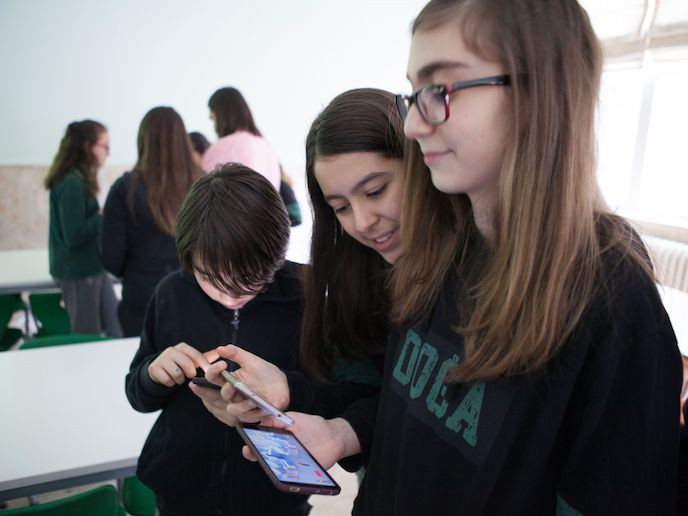Gamers in ten countries make learning fun
Developers from SMEs worked with schools and universities in 10 countries to create an innovative games platform to make learning science, technology, engineering and maths (STEM) fun. EU project BEACONING was so successful that the platform was rolled out to pupils of more age groups than initially envisaged and also piloted with arts and humanities. “The Beaconing platform empowers teachers to think and imagine beyond traditional didactic practices,” said project coordinator Professor Sylvester Arnab, a professor of game science at the Disruptive Media Learning Lab(opens in new window) (DMLL), Coventry University in the United Kingdom. “The flexibility of how the gamified lessons are designed and created allows teachers to create and personalise lessons suitable for the needs of the learners, including those with a disability.” The BEACONING platform lets teachers pick a narrative and choose from a series of mini games or even write their own story. In one example(opens in new window) children are told an evil tycoon has hidden a stash of toxic toys, and their job is to track them down. This case involves a race around the school on a treasure hunt, answering questions on mobiles about pollution and the periodic table and carrying out a scientific experiment in the laboratory. Make it local Teachers can use local points of interest in their areas to give pupils examples of potential role models, such as Romanian engineer Elisa Leonida Zamfirescu(opens in new window). “When set as public, the community of teachers can access each other’s gamified lesson plans and will be able to clone and reuse,” said Prof. Arnab. The pilot included 5 476 students and 776 teachers from seven European Union countries (Bulgaria, France, Greece, Italy, Poland, Romania and the United Kingdom), as well as Turkey, Israel and South Africa. The developers based their approach on the 2017 ‘Opening Up Education’ agenda of UNESCO and the ‘Unpacking Sustainable Development Goal 4, Education 2030 Guide’(opens in new window). They initially focused on STEM subjects, since the ‘PISA 2012 results: The ABC of Gender Equality in Education: Aptitude, Behaviour, Confidence’(opens in new window) showed that both boys and girls lacked self-confidence in science and maths. Capitalising on the university partners’ research on game-based learning, the consortium hypothesised that a more playful approach to learning could help. Both teachers and pupils gave positive feedback. “The geo-location activities were deemed to be very innovative and really opened up their imagination on how education content can be delivered in a creative way,” said Prof. Arnab. BEACONING is now extending the platform to more schools in the 10 participant countries and to organisations working with learners with disabilities. A toolset called Accessabar helps learners with disabilities such as minor hearing and visual impairments. Some of the technical applications designed for the platform are being repurposed for uses outside the educational sector. The geo-location component, for instance, led to a spin-off product called PlayVisit(opens in new window), currently being used in Barcelona, Spain on the famous La Rambla street as part of a retail campaign(opens in new window). The game analytics component was released as an open-sourced API. The Beacon sensor management API was shortlisted for the Innovation Radar award last year. “The reach that we achieved was due to the combined networks of the BEACONING partners,” said Prof. Arnab.







